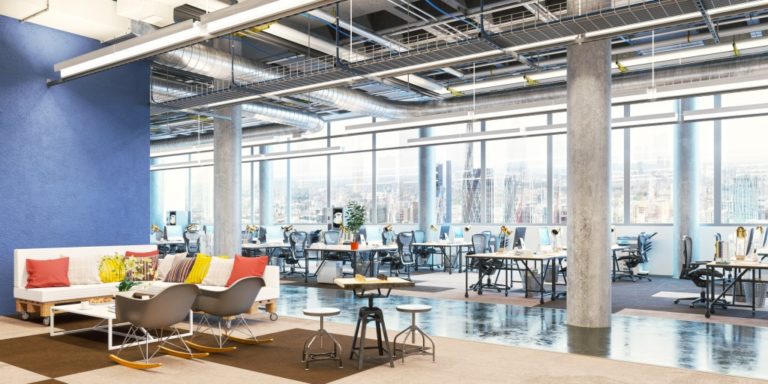Companies are faced with the challenge of reinventing offices. The global pandemic forced a drastic shift on businesses and professionals. At the height of COVID-19, many companies opted to transition to remote work to carry out their daily operations.
The development of vaccines and an imminent rollout promises a return to the workplace soon. However, while some have missed the professional environment, not all employees are keen on coming back to the office right away.
Redeeming Office Circumstances
The traditional office, in itself, is an important element for work. It provides a space where professionals can experience a sense of community with their colleagues, a necessary aspect robbed by the remote work setup. This also helps improve employee engagement and retention.
On the other hand, home offices allow employees better control over their privacy and focus. After more than a year of facing the global pandemic, most professionals have grown accustomed to working-from-home. Reversing the current arrangement may prove to be challenging for companies.
To accommodate their employees, most employers are making the return to the office voluntary rather than mandatory. Some are adopting hybrid weekly schedules to maintain a balance between both working arrangements.
Different employees will surely have varying preferences regarding their work setup. Yet, the single fact that holds is that they expect a much different work environment in the post-pandemic era. There are three primary indiscretions companies should avoid when they reopen their offices to the workforce.
Lack of Safety
The design for safety is expected to be one of the major shifts in design that employees expect in the office of the future. Granted that everyone has been sheltered-in-place due to the lockdowns, office maintenance has surely been sparse.
Companies should examine the state of their offices before allowing employees to return. Establishments have been left vulnerable to the elements without the proper upkeep, leading to different types of damage to the walls or roofing. Consider roof leak repair and other necessary services to reassure safety.
Moreover, offices should have comprehensive practices in place to mitigate the transmission of diseases. Coming from the context of a global pandemic, approximately 73% of U.S. employees are concerned about the air quality and adherence to safety protocols within the office.
Passive Spaces
Flexibility is another particular issue that employees wish to be addressed. Companies have already taken the necessary steps to allow their employees to return to the office when they are comfortable doing so. This promotes a company healthy culture of understanding and inclusivity.
However, the adaptability of the workplace is also an important element that employers should consider. The traditional, pre-pandemic office was perceived to be too static that was filled with fixed furnishings. Employees are hoping for a much different approach when it comes to the layout of the workplace.
Companies should consider creating an office full of multi-use spaces that will easily accommodate different group sizes and activities. The integration of the outdoors is also an increasing trend. Office density and capacity will constantly change as employees have the choice of when and where to work.
Absence of Appreciation

Professionals have internalized a lot of stress and anxiety throughout the duration of the global pandemic. Ensuring employees’ mental and emotional health has been an increasing priority over the years, and the pandemic has magnified its relevance.
While the work-from-home setup does have its benefits, maintaining a healthy work-life balance has proven to be much more difficult. It has put a strain on many relationships as professionals struggle to shift to different roles at home constantly. The feeling of isolation has also been exacerbated.
Employers should make an effort to support their workers as necessary once they return to the office. This entails more open lines of communication within the workplace. Companies may also choose to improve the health benefits of their employees. Allocate enough time and resources for these issues.
Improved Workplace, Better Work Experience
The modern office will definitely be reshaped drastically. Employees are expecting a very different environment from the ones they left due to the pandemic. On the other hand, companies should also be able to look at the workplace from a different perspective and reconfigure accordingly.
Nonetheless, it’s encouraging to see that most employers react to these changes at a much quicker pace and with more hope for the future. Approximately 56% of companies have already redesigned their office spaces because of the global pandemic.
Employees deserve to have a better work experience after suffering through the crisis of the past year. The first step towards achieving this is by creating a better workspace for these professionals, especially as vaccinations continue to drive a return to the office.




